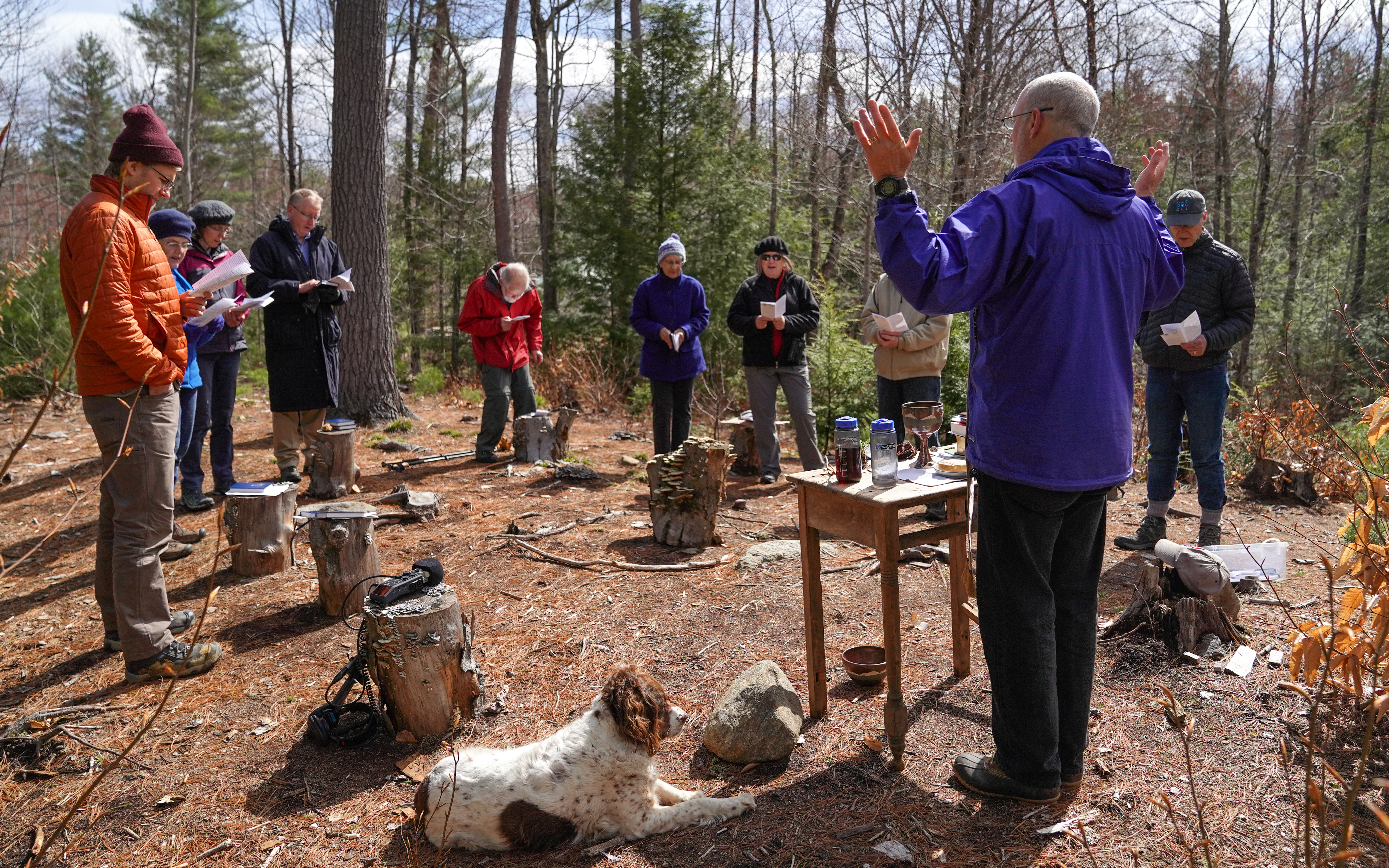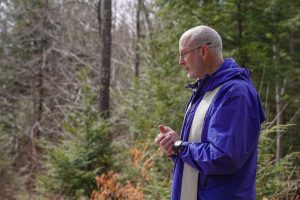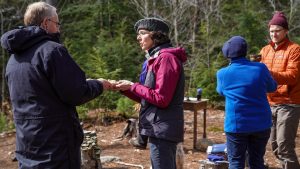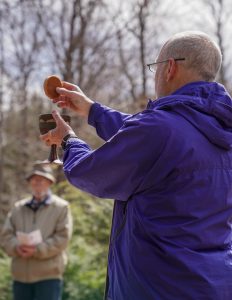Wild Churches Bring Religion Outside
It’s Sunday morning. The Reverend Stephen Blackmer is ringing two large handbells. He’s calling his congregation back from silent meditation.
They gather to pray around the altar. It’s a small wooden table set on a sunny knoll beneath three white pine trees. On top of the table sits communion bread wrapped in foil, wine in a Nalgene bottle, and offerings of clover, mushrooms, and berries gathered from the surrounding forest. This is Church of the Woods.
Reverend Blackmer isn’t your typical man of the cloth. He didn’t grow up in a religious family. He spent most of his career running forest conservation nonprofits and lobbying for environmental policies. By his late 40s, distraught by the effects of climate change and exhausted from battling the fossil fuel industry, he experienced a profound crisis.
“No matter what I did, there were ecological forces vastly bigger than anything I could stop,” said Blackmer. “And it was really a sense of despair, of depression.”
Then, on his way home from a trip in 2007, Blackmer heard a voice.
“I looked out the window just as our airplane was about to land and saw a church steeple near the airport, and this voice came and said, Priest. You are a priest. You are to be a priest.”
Blackmer tried to resist the call. He had never read the Bible before and was hesitant to embrace what he believed was an anti-science faith. But the voice was persistent, and Blackmer relented. He went to Yale Divinity School and was ordained as an Episcopal priest. He moved back to New Hampshire, where he bought a hundred-acre woodlot and he heard another calling.
“That little voice came back and said, Start a church. A church of the woods. Oh, I could do a church of the woods.”
Now in its fifth year, the Church of the Woods draws a small but dedicated group of followers. The service is rooted in the Episcopalian tradition, with a few modifications for the outdoors.
“The sermon appears to be very brief, but in fact, I think about it as having three parts. There’s what I say, the preaching. Then there are twenty minutes of listening to ourselves in silence, what comes up inside us and listening to what the earth has to say through the woods. And then we come back and we share reflections, so we listen to each other.”
Fred Brewster is one of a few dozen people who attend Church of the Woods on a regular basis
“For years I’ve come every Sunday not because I have to because I want to,” says Brewster. “It does something for me to come. It’s refreshing to me. And I use the Eucharist as a way of healing. So for me, it’s a habit that I enjoy and I’m replenished.”
Patricia Hutchins traveled from Concord and she brought her springer spaniel, Molly.
She explains, “I always get something out of the services. Sometimes it’s the readings, and sometimes it’s the silent meditation. But always I feel like I’ve been fed at Church of the Woods. And Molly loves it, too.”
One of the most radical departures from a traditional service is the Eucharist.
“Our practice at Church of the Woods is that the first piece of Christ’s body, of the bread, is offered back to the earth herself, in recognition that this meal is intended to heal the whole world, and not only the human beings,” says Blackmer. “And the second bit goes to our faithful Molly. And then we pass around the bread and the wine and we serve each other.”
His congregation may be small, but Blackmer is not a lone voice in the wilderness. He recently founded a network to connect Wild Churches across North America. Like Blackmer, the leaders of these churches care deeply about the natural world. They work to bridge the divide between Christian belief and conservation science, to connect personal salvation with saving the earth.
“We live in a time when there’s an enormous need for healing, both physical healing, spiritual healing, emotional healing, and there’s something about this practice, this place, and this community, and this ritual, this liturgy, that does that. At its core, I’ve begun to think that’s really what this is about: it’s a healing, literally a healing of the world in this small community and ritual, in this gathering, every week.”




